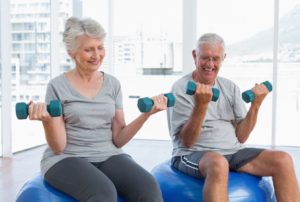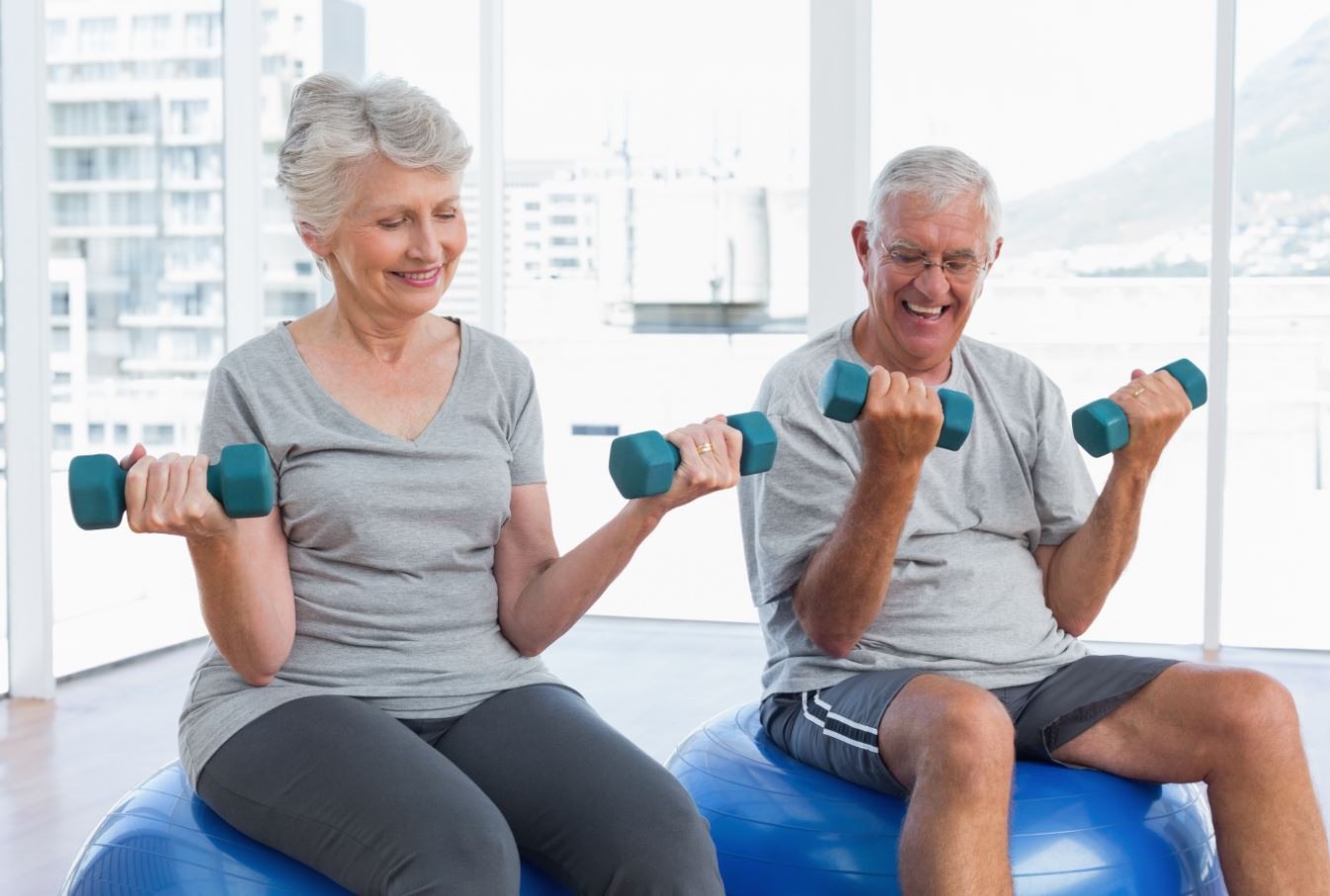Some time ago we wrote an article on why is important for seniors to exercise. Since is such an important topic, we wanted to do a follow up and give you even more reasons to start exercising today. You can live healthy lifestyles by practicing low impact exercises such as walking, jogging, cycling, and swimming which are less demanding for your age. Physical activity at old age has many physical and mental health benefits – here are some of them:
Weight Loss
Inactivity has been shown to contribute to weight gain and obesity. Exercising helps increase the body’s metabolic rate thus burn more calories leading to weight loss. Our bodies spend energy on exercising, food digestion and maintenance of body functions such as breathing and heartbeat. Ageing predisposes one to weight gain since most people stop exercising thus more calories are stored in the body. Resistance training combined with aerobic exercises are especially good in maintaining muscle mass and maximizing fat loss.
Building Strong Bones and Muscles
Exercising is vital in the building and maintenance of strong bones and muscles. Exercising stimulates the production of hormones that enhance muscle’s absorption of amino acids by increasing protein intake in the body. Muscle mass and function decrease with age due to disuse and inactivity. Balance becomes affected since the hips and legs become weak. Balance exercises are thus essential in strengthening the hip and leg muscles. Resistance bands are essential in workouts targeting the waist and bust muscles to increase one’s balance.
Increased Energy Levels
Regular exercise helps boost energy levels and make you feel and look younger. Senior members of the society will enjoy great benefits from exercising such as being self-dependent at an advanced age. Fatigue is greatly reduced in people who exercise. Exercising makes older people more productive by increasing their mental and physical strength.
Enhances Brain Health and Memory
Exercising improves the functioning of the brain and protects memory loss. Exercising increases heart activity and thus more blood flows in the brain. The brain function at optimum when supplied with blood and oxygen which promotes sharp memory. Older persons are more prone to inflammation of the brain and memory loss due to the effect of free radicals in the environment which alter the structure and function of the brain such as Schizophrenia and Alzheimer’s disease. Exercising promotes the growth of the brain in learning and keeping the memory.
Improves Sleep Quality and Relaxation
Older persons have a declined need for sleep. Exercising can help them sleep better and relax. During exercise, energy is used up which is replenished during sleep. Body temperature increases during exercise which is then brought to the normal during sleep which improves sleep quality. Exercising can help keep off insomnia and make older people have more energy during the day by removing sleep disorders.
Reduced Risk of Chronic Ailments
Older people are more prone to chronic illnesses such as diabetes, heart disease and high blood pressure due to inactivity. Exercising regularly improves cardiovascular fitness and sensitivity of the body to insulin besides reducing the amount of fat in the blood and blood pressure.
Improved Skin Health
Exercising helps the body produce natural antioxidants that help repair damaged skin cells. Additionally, exercising helps improve the flow of blood in the skin thus improved excretion of waste through sweating. Improved blood flow to the skin helps avoid skin infections and keep it looking younger.


